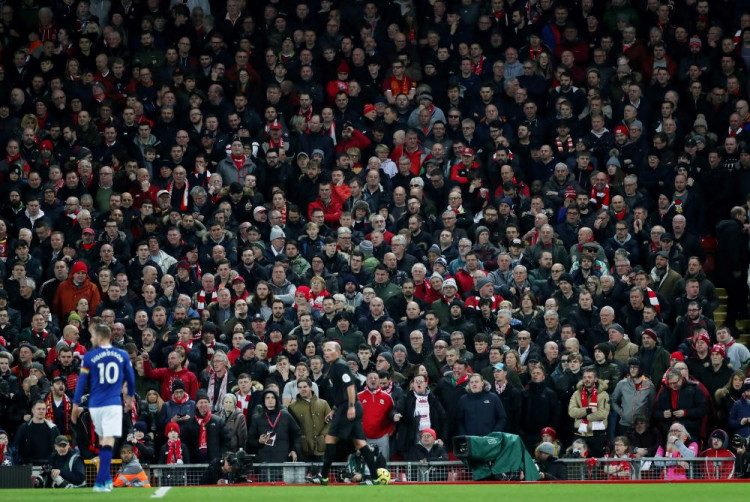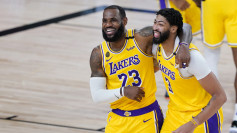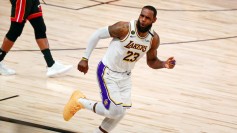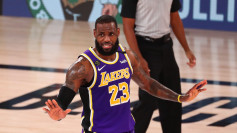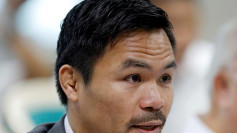The Union of European Football Associations, or Uefa, meets Monday Europe time to discuss what to do after European football was thrown into turmoil late Sunday by new plans for a European super league.
The breakaway league feels it can generate more revenue for member clubs if it ran the current Champions League competition itself and be more agile and innovative - by playing on weekends or taking it on the road to Asia or North America, according to ESPN's senior sports analyst Gabriele Marcotti.
Meanwhile, Uefa and England's Premier League condemned the proposals. Uefa said it was a "cynical project founded on the self-interest of a few clubs." The joint statement which was also signed by England's Football Association and its counterparts in Spain and Italy said the governing bodies would ban any players involved from "any competition at domestic, European or world level."
However, the announcement means six English clubs - Manchester City, Manchester United, Liverpool, Arsenal, Chelsea and Tottenham - will join the breakaway competition alongside three teams from each of Italy and Spain.
Uefa was due to introduce plans for an expanded and restructured Champions League Monday. Uefa can remove that scheduled vote on Champions League reform and buy time for more negotiations with the big clubs and maybe offer them more concessions - maybe a greater share of revenue or direct control over the competition or guaranteed places.
"We will consider all measures available to us, at all levels, both judicial and sporting in order to prevent this happening," said Uefa's statement. "Football is based on open competitions and sporting merit; it cannot be any other way."
The super league would represent one of the biggest changes ever made in football and threaten not only the future of the Champions League but could have a seismic impact on the entire structure of the club game, according to Ed Aarons and Sean Ingle writing in The Guardian Monday.
The Premier League in England has told its top clubs to "walk away immediately (from the super league idea) before irreparable damage is done."
Fans of the Premier League clubs named as part of the breakaway league joined forces to condemn the move with Chelsea's Supporters' Trust describing it as the "ultimate betrayal."
The Tottenham Hotspur Supporters' Trust said it was "deeply concerned" at its club's involvement while Arsenal's Supporters' Trust described it on Twitter as "the death of the club as a sporting institution."
In a statement the Chelsea trust said: "Our members and football supporters across the world have experienced the ultimate betrayal. This is a decision of greed to line the pockets of those at the top and it has been made with no consideration for the loyal supporters, our history, our future and the future of football in this country."
According to various news reports Monday Paris Saint-Germain and Bayern Munich have insisted they haven't signed up.
Real Madrid president Florentino Pérez is to be the first chairperson of the league, the super league announcement said. Juventus chairperson Andrea Agnelli and Manchester United joint chairperson Joel Glazer are to be his deputies.
The Financial Times reported the league is backed by $6 billion in financing from bank JPMorgan.
The founding clubs are to receive 3.5 billion euros ($4.18 billion) each "solely to support their infrastructure investment plans and to offset the impact of the COVID pandemic," the super league said. It promised the competition would be built on a "sustainable financial foundation" and would require founding clubs to sign up to a "spending framework."
The super league statement said: The statement added: "Going forward, the founding clubs look forward to holding discussions with Uefa and (the International Federation of Association Football, or Fifa) to work together in partnership to deliver the best outcomes for the new league and for football as a whole. The formation of the super league comes at a time when the global pandemic has accelerated the instability in the existing European football economic model. Further, for a number of years, the founding clubs have had the objective of improving the quality and intensity of existing European competitions throughout each season, and of creating a format for top clubs and players to compete on a regular basis."
According to the ESL, the new format will involve midweek fixtures, with all participating clubs continuing to compete in their respective national leagues, "preserving the traditional domestic match calendar which remains at the heart of the club game."
It expects to kick off in August. There was no mention of how the COVID pandemic would affect game attendance or of TV revenues.
